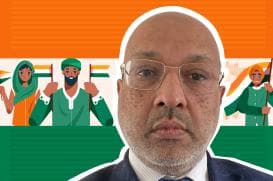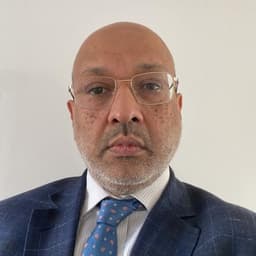Lessons in Diversity for Europe
India's rich diversity offers key lessons for Europe's cultural challenges

As Europe grapples with the challenges of cultural and religious diversity, particularly in light of recent political developments and immigration debates, it can look towards countries like India for insights into managing a diverse society. Giorgia Meloni, Italy's first female Prime Minister, has sparked discussion with her policies and views, which some compare to the rhetoric of historic figures like Benito Mussolini.
Her stance on issues like immigration and cultural identity, resonating with the perspectives of leaders like British PM Rishi Sunak and Dutch Prime Minister Geert Wilders, reflects a broader European struggle with diversity.
However, India's experience offers a different perspective. India’s history of religious and cultural coexistence, as exemplified by the unique orientation of the Juni Masjid or Barwada Masjid on the northern edge of the ancient port town of Ghogha, on the Gulf of Khambhat, Gujarat. This mosque is oriented towards Jerusalem, showcasing a deep-rooted tradition of pluralism.
India’s pluralism is further strenghtened by the constitutional guarantees of religious freedom, ensuring that different faiths not only coexist but also thrive. The success of Muslims in various fields in India, including sports and entertainment, highlights this inclusive approach.
In contrast to the European approach, often characterized by stringent immigration policies and debates over cultural integration, India's model underscores the importance of embracing diversity. The country’s history of welcoming different faiths and its commitment to constitutional values offer valuable lessons.
While Europe currently navigates the complexities of integrating diverse populations, it might find valuable insights in India's approach to religious and cultural plurality. The ongoing acceptance of interfaith marriages in India, despite incidents of religious intolerance, presents a hopeful picture of inclusivity.
European nations, facing rising sentiments against immigrants and religious minorities, could benefit from understanding India's approach to diversity. India's example shows that it is possible to maintain a national identity while respecting and integrating a multitude of cultural and religious backgrounds.
As Europe addresses its own challenges with diversity, looking towards nations like India, with their rich tapestry of cultures and religions, could provide important lessons in fostering an inclusive society. Giorgia Meloni’s policies and the broader European context could benefit from this perspective, promoting a more harmonious coexistence in an increasingly diverse world.



































